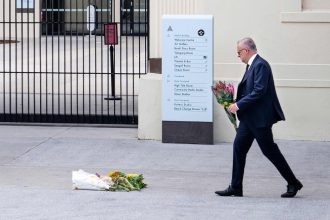SEOUL: One of the two flight attendants who survived Sunday’s (Dec 29) catastrophic Jeju Air crash revealed to doctors that he “woke up to find himself rescued.” Medical staff, prioritizing his recovery, have refrained from probing him about the traumatic incident to avoid exacerbating his emotional distress.
Dr. Ju Woong, head of Ewha Womans University Medical Center, where the flight attendant, identified only by his surname Lee, is receiving treatment, addressed reporters on Sunday night. “Due to the trauma associated with the accident, we have avoided asking detailed questions about what happened. Such discussions would not contribute to his recovery,” Ju explained.
When questioned about potential memory loss, Ju cautioned against drawing premature conclusions. “Lee is fully capable of communication, but it’s too early to determine if there are gaps in his recollection,” he added.
Initially admitted to a hospital in Mokpo, South Jeolla Province, Lee was transferred to the Seoul-based medical center at approximately 4:15 pm on Sunday. He was diagnosed with fractures in five areas of his body, along with forehead and scalp lacerations. Currently in intensive care, Lee faces the risk of paralysis due to neurological damage and is scheduled for psychiatric evaluation to address the psychological toll of the crash.
The second survivor, a female flight attendant surnamed Gu, is being treated at Asan Medical Center in Seoul for injuries to her ankle and head. Her condition, while serious, is not life-threatening. Medical staff have declined to provide further details.
Lee and Gu were the only survivors of Jeju Air flight 7C 2216, which tragically crash-landed at Muan International Airport in South Jeolla Province. The plane failed to deploy its landing gear for reasons still under investigation, resulting in the deaths of 179 of the 181 passengers and crew on board.
Authorities are continuing the painstaking process of identifying the victims and investigating the cause of the crash. The South Korean government has declared a seven-day national mourning period, extending until midnight on Jan 4, in honor of the lives lost.








